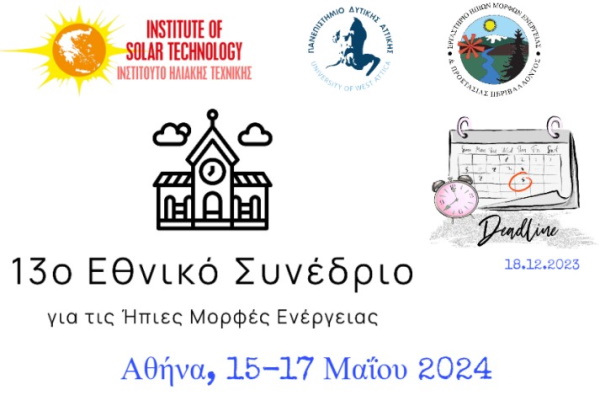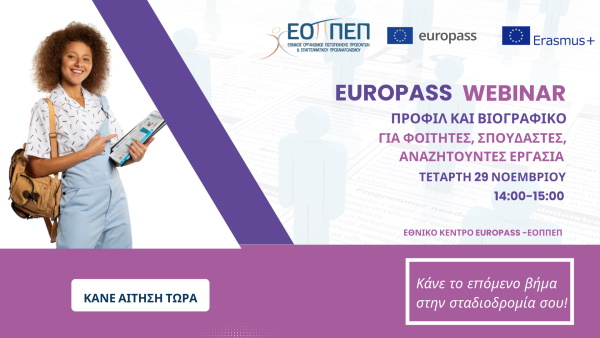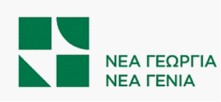INTERNAL AND EXTERNAL VACANCY ANNOUNCEMENT
The Representation of the United Nations High Commissioner for Refugees (UNHCR) in Greece invites qualified candidates to apply for the following Job Opening:
Job Opening ID: 30742
Job Posting Title: Protection Officer
Duration of appointment: One-year Fixed-term Appointment (with possibility of extension).
Position number: 10017376
Category and Grade: National Professional Officer, NOC
Duty Station: Athens
Closing date: 8 November 2021 (Midnight, Geneva)
Operational Context
Nature of the position
The incumbent reports to the Assistant Representative (Protection) and has direct supervisory responsibility.
S/he acts as an advisor to senior management and is responsible to design, coordinate and oversee UNHCR’s work in the field of integration of beneficiaries of international protection in Greece. S/he represents UNHCR, at the appropriate level, to central and local authorities, UN sister agencies, partners and other stakeholders on policy and doctrine relating to protection and durable solutions – in particular local integration in Greece – for refugees.
The incumbent will also be responsible for UNHCR’s work in relation to statelessness, in particular with the objective of helping Greece eradicate statelessness within the timeframe of the 10-year global campaign to end statelessness.
The incumbent will have to demonstrate a high level of political and organisational awareness and emotional intelligence as he will frequently engage with a wide range of actors from Government, to municipalities, to private sector, to civil society and UN agencies – including a wide range of engagement and consultation within the wider UNHCR team. This will also require strong internal and external coordination skills. The integration portfolio in particular will require a multi-functional effort and approach, and the incumbent must serve as a driving force and convener on the issue, including for programmatic matters. The incumbent will work in close cooperation and coordination with other protection colleagues in the office as well as with programme, PI and external relations staff.
Familiarity with the relevant legal, administrative and structural obstacles and opportunities linked to the dossiers of integration and of statelessness will be crucial.
Living and Working Conditions
Currently, some 96,000 asylum-seekers and refugees are hosted in Greece. So far in 2021, over 6,300 people have arrived either by sea or land - a significant reduction compared to previous years. UNHCR supports the Government who coordinates the refugee and migrant response in the development of policy, capacity building and targeted interventions in the areas of reception, asylum procedures and for finding durable solutions, with a focus on integration.
Within these 96,000 persons, there are currently almost 5,800 refugees and asylum-seekers on the Aegean islands. The Greek government will open new `Multipurpose Reception and Identification Centres’ on the five Aegean islands hosting asylum-seekers, namely Lesvos, Samos, Chios, Leros and Kos. The first such centre was inaugurated on Samos in September 2021.
UNHCR also has multiple interventions in core areas of Child Protection, GBV and areas addressing specific needs of persons of concern. The Office retains a readiness to respond to emergencies and new arrivals, with a focus on immediate support to the most vulnerable.
UNHCR Greece plays a strong advocacy role since continued support is needed particularly from EU countries and EU institutions in providing immediate protection to those most at-risk through sufficient resources, ensuring capacity in the country and responsibility-sharing. UNHCR, along with other actors, fully supports the relocation process led by the Greek government and supported by the EU, of unaccompanied children, vulnerable asylum-seeking families and refugees. To date, some 4,381 people have been relocated from Greece to 14 EU countries. UNHCR will continue to assist Greek authorities in responding to both short and long-term challenges.
Athens is a family duty station. In accordance with UNDSS security risk assessment, the whole Greek operation is classified as Security Level 2 (low). Security Clearance is required for travelling in the country.
Duties and Qualifications
Organizational Setting and Work Relationships
In the Bureaux, the Protection Officer works under the direct supervision of the Senior Protection Coordinator or Senior Protection Officer. In the Field, the incumbent normally reports to the Representative, Deputy or Assistant Representative (Protection), Head of Sub Office or Senior Protection Officer as appropriate. The incumbent may have direct supervisory responsibility for protection staff whose work may include RSD, community-based protection, registration, resettlement, complementary pathways, internal displacement and education, among other areas. In HQ, the incumbent may report to a Senior Protection Officer, Chief of Section or Deputy Director and may supervise other protection staff.
The incumbent acts as an advisor to senior management in, when not responsible for, designing a comprehensive protection strategy under the area of responsibility (AoR). S/he represents the Organization to authorities, UN sister agencies, partners and other stakeholders on protection policy and doctrine.
The Protection Officer coordinates quality, timely and effective protection responses to the needs of populations of concern under the AoR. S/he ensures that persons of concern of all age, gender and diversity groups are involved with the Office in making decisions that affect them, whether in accessing their rights or in identifying and implementing appropriate solutions to their problems. To undertake this role effectively, the incumbent will need to build and maintain effective interfaces with other relevant teams within the operation or the Bureau (including programme; PI and external relations; IM) and with DIP, communities of concern, authorities, protection and assistance partners as well as a broader network of stakeholders who can contribute to enhancing protection and achieving solutions.
All UNHCR staff members are accountable to perform their duties as reflected in their job description. They do so within their delegated authorities, in line with the regulatory framework of UNHCR which includes the UN Charter, UN Staff Regulations and Rules, UNHCR Policies and Administrative Instructions as well as relevant accountability frameworks. In addition, staff members are required to discharge their responsibilities in a manner consistent with the core, functional, cross-functional and managerial competencies and UNHCR’s core values of professionalism, integrity and respect for diversity.
Duties
- Provide technical guidance and support to UNHCR and partners on all protection related issues.
- Stay abreast of and report as relevant on legal political, social, economic and cultural developments that have an impact on the protection environment.
- Engage relevant national authorities and structures in identifying and expanding opportunities in view of developing or strengthening national asylum/RSD systems.
- Facilitate a consultative process with government counterparts, partners and persons of concern to develop and implement a comprehensive protection and solutions strategy addressing the specific protection needs of women and men, children, youth and older persons, persons with disabilities, persons of diverse sexual orientation and/or gender identities (LGBTI persons), persons living with HIV/AIDS; gender equality and Gender Based Violence (GBV) priorities with regard to these persons.
- In operations applying the Cluster Approach, seek to ensure the response of the Protection Cluster is grounded in a strategy which covers all assessed and prioritized protection needs of the affected populations.
- Support senior management to ensure the protection strategy is fully integrated into the Country Operations Plan, the UN Development and Assistance Framework (UNDAF), the Humanitarian Country Team’s common humanitarian response plan where applicable, as well as with the implementation of the Global Compact on Refugees and the Three Year Strategy on Resettlement and Complementary Pathways.
- Promote relevant International, Regional and National Law and applicable UN/UNHCR and IASC policy, standards and codes of conduct and ensure that all sectors and /or in clusters in applicable operations fulfil their responsibilities in mainstreaming protection.
- Promote the implementation of the AGD policy, including UNHCR’s updated commitments to women and girls, and, design, deliver I and monitor programmes on an AGD basis to address identified protection needs.
- Develop, implement and monitor community-based protection strategies and ensure systematic application and integration of participatory and community-based approaches in protection and solutions planning, programming and strategies.
- Support the establishment of feedback and response systems and the incorporation of feedback received from persons of concern into programme design and adaptation.
- Support the operation to develop and implement robust prevention, identification, and responses to fraud within protection processes and procedures, including registration, RSD, resettlement and complementary pathways, ensuring the integrity of interventions across all protection activities.
- Assist UNHCR management at country level to comply with polices and commitment on Protection from Sexual Exploitation and Abuse measures.
- Oversee and manage individual protection cases including those on GBV and child protection.
- Provide legal advice and guidance on protection issues to internal and external interlocutors; ensure legal assistance is accessible to persons of concern; liaise with competent authorities to ensure the issuance of personal and other relevant documents to persons of concern (including women and others in need of civil documentation, in particular birth certificates).
- As designated Data Protection Focal Point, assist the data controller in carrying out his or her responsibilities regarding the Data Protection Policy (7.2 DPP).
- Oversee and undertake eligibility and status determination within the AoR ensuring compliance with UNHCR procedural standards and international protection principles.
- Promote and implement effective strategies and measures to identify, prevent and reduce statelessness within the AoR.
- Contribute to the development and implementation of an education plan as part of protection strategy within the AoR as relevant.
- Contribute to the development and implementation of a child protection plan as part of the protection strategy within the AoR ensuring programmes use a child protection systems approach.
- Monitor, and intervene in cases of refoulement, expulsion and other protection incidents through working relations with governments and other partners.
- Work to safeguard the rights of persons of concern in the context of mixed movements as relevant.
- Coordinate the preparation of, implement and oversee Standard Operating Procedures (SOPs) for all protection/solutions activities.
- Ensure that durable solutions through voluntary repatriation, local integration and where appropriate, resettlement and complementary pathways are sought and provided to the largest possible number of persons of concern, including undertaking and/or overseeing resettlement and complementary pathways activities.
- Contribute to the coordination of the design, implementation and evaluation of protection related programming with implementing and operational partners.
- Contribute to and facilitate a programme of results-based advocacy through a consultative process with sectorial and/or cluster partners.
- Ensure that the Protection Sector or Cluster has an effective information management component which: provides disaggregated data on populations of concern and their problems; researches, collects and disseminates relevant protection information and good practices to enhance protection delivery.
- Build the protection capacity of national and local government, partners and civil society to assume their responsibilities vis-à-vis all persons of concern through protection training, mainstreaming and related activities.
- Coordinate capacity-building initiatives for communities and individuals to assert their rights.
- Advise and capacitate national authorities, relevant institutions and civil society to strengthen legislation and status determination procedures and mechanisms.
For positions in Bureaux
- Support the Regional Bureau and Country Operations to reflect the protection and solution angle in support of persons of concern within regional processes.
- Support Country Operations in the development of strategies to build and further develop national asylum/RSD systems with a view to ensuring their fairness, efficiency, adaptability and integrity, favourable protection environment and solutions.
- Assist UNHCR management at regional and country level to comply with polices and commitment on Protection from Sexual Exploitation and Abuse measures.
- Support Country Operations and ensure they meet their complementary pathways objectives and resettlement quotas.
- In close collaboration with DIP, (a) contribute to the development of background and general normative, policy, and legal positions, in compliance with UNHCR’s global protection policies and standards; (b) contribute to the development of strategies at the regional and country level on the usage of law and policy approaches, including legislative and judicial engagement and UN human rights mechanisms –and/or regional ones – and other protection frameworks, and integrated human rights standards in protection strategies and advocacy; and (c) support coordination and review of UNHCR’s country reports to the UN human rights mechanisms.
- Engage in relevant international and regional fora and contribute to forging regional partnerships to advocate for key protection and mandate issues, and engage in cross-cutting protection-related matters, including mixed movement, internal displacement and climate change/disaster-related displacement responses, as well as Statelessness, in cooperation with DIP and where relevant RSD.
- Perform other related duties as required.
Minimum Qualifications
Education & Professional Work Experience
Years of Experience / Degree Level
- 6 years relevant experience with Undergraduate degree; or 5 years relevant experience with Graduate degree; or 4 years relevant experience with Doctorate degree
Field(s) of Education
Desirable:
- Law; International Law; International Refugee Law; International Human Rights Law; International Humanitarian Law; Refugee and Forced Migration Studies; Political Sciences or other relevant field.
Certificates and/or Licenses
Desirable:
- Protection Learning Programme
- RSD Learning Programme
- Resettlement Learning Programme
Language Requirements
- Knowledge of English and UN working language of the duty station if not English and local language.
Relevant Job Experience
Essential:
- Minimum 4 years of relevant professional experience in the area of refugee protection, internal displacement, human rights or international humanitarian law, including experience in working directly with Field Offices. Good knowledge of International Refugee and Human Rights Law and ability to apply the relevant legal principles. Excellent legal research, analytical skills and drafting.
Desirable:
- Diverse field experience. Good IT skills including database management skills.
Functional Skills
Essential:
- PR-Protection-related guidelines, standards and indicators
- LE-International Refugee Law
- PR-Age, Gender and Diversity (AGD)
Desirable:
- PR-Gender Based Violence (GBV) Coordination
- PR-Comprehensive Solutions Framework
- PR-Human Rights Doctrine/Standards
- PR-International Humanitarian Law
- LE-Judicial engagement
- PR-Protection and mixed-movements
- PR-Internally Displaced Persons (IDP) Operations & IDPs Status/Rights/Obligation
- PR-Climate change and disaster-related displacement
- PR-Community-based Protection
- PR-Accountability to affected people Principles and Framework
Competencies
All jobs at UNHCR require six core competencies and may also require managerial competencies and/or cross-functional competencies. The six core competencies are listed below:
Core Competencies:
- Accountability
- Communication
- Organizational Awareness
- Teamwork & Collaboration
- Commitment to Continuous Learning
- Client & Result Orientation
Managerial Competencies:
- Managing Performance
- Judgement and Decision Making
- Empowering and Building Trust
Cross-Functional Competencies:
- Negotiation and Conflict Resolution
- Planning and Organizing
- Political Awareness
All UNHCR workforce members must individually and collectively, contribute towards a working environment where each person feels safe, and empowered to perform their duties. This includes by demonstrating no tolerance for sexual exploitation and abuse, harassment including sexual harassment, sexism, gender inequality, discrimination, and abuse of power.
As individuals and as managers, all must be proactive in preventing and responding to inappropriate conduct, support ongoing dialogue on these matters and speaking up and seeking guidance and support from relevant UNHCR resources when these issues arise.
This is a Standard Job Description for all UNHCR jobs with this job title and grade level. The Operational Context may contain additional essential and/or desirable qualifications relating to the specific operation and/or position. Any such requirements are incorporated by reference in this Job Description and will be considered for the screening, shortlisting and selection of candidates.
Eligible Applicants
- This position is open to all applicants (internals/externals).
- Recruitment against this position is on a local basis.
- Candidates for positions in the National Professional Officer category must be nationals of Greece (primary nationality).
Duration of Appointment
- One-year Fixed-term Appointment (with possibility of extension).
- Expected start date of this assignment: 01/01/2022.
Additional Information
The closing date for submission is 8 November 2021 (Midnight, Geneva).
- No late applications will be accepted.
- Only shortlisted applicants will be contacted.
- Shortlisted candidates might be required to sit for a written test and will have to undergo an oral interview.
Kindly note that only electronic applications will be considered:
- Internal applicants (Group 1) are invited to apply online through the MSRP portal (self-service) and fill in the letter of interest.
- External applicants are invited to apply using the external Careers pages www.unhcr.org/careers and https://www.unhcr.org/gr-jobs/ .
- Should you encounter technical issues or have questions during the online application, please contact the HR Unit at well before the deadline.
UNHCR is an equal opportunity employer and does not charge a fee at any stage of the recruitment process (application, interview meeting, processing, training or any other fees).
UNHCR is committed to diversity and welcomes applications from qualified candidates regardless of disability, gender identity, marital or civil partnership status, race, colour or ethnic and national origins, religion or belief, or sexual orientation.
[To send your CV please click here.]








